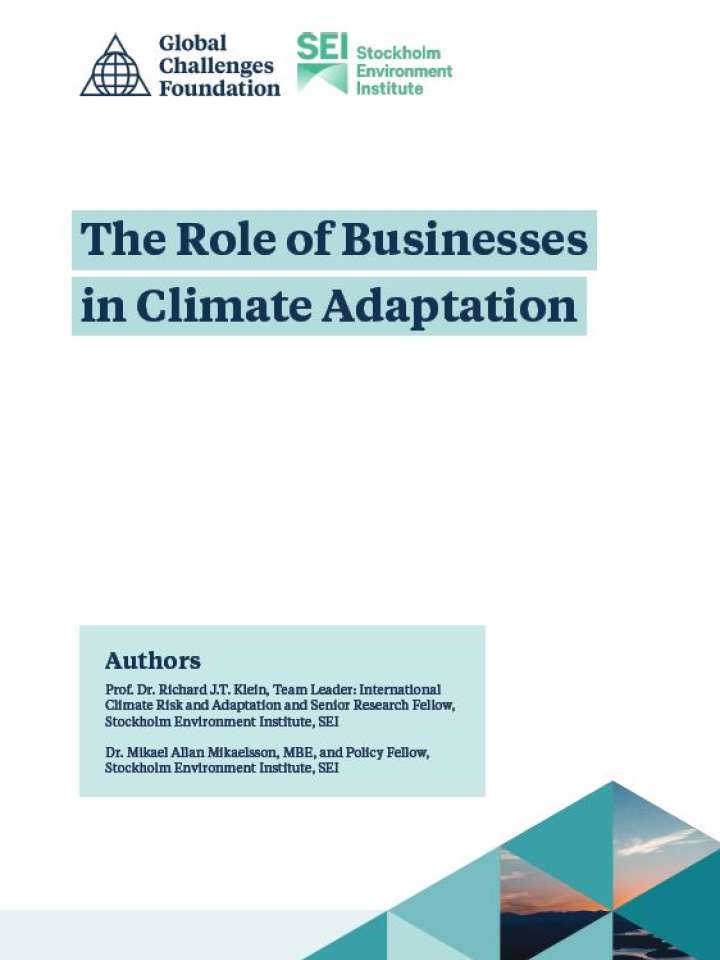The role of businesses in climate adaptation
This policy discussion brief looks at key considerations for business-led adaptation; opportunities for businesses around climate adaptation; the role of governments and international agreements; and the role of the financial sector. In recent years the world has seen impacts of climate change rapidly intensify with more severe, frequent and unpredictable extreme weather events, as well as sea rise level that threatens communities and countries all over the world. The private sector has in many ways taken a leading role in mitigation efforts, but a similar business-led movement on adaptation is still to be developed.
The authors summarize their discussion in four key messages:
- The role of businesses, and the private sector at large, in strengthening resilience and supporting global adaptation efforts is more important today than ever before, as the world faces more severe and frequent extreme weather events, at an enormous economic toll.
- In a global economy that is underpinned by international supply chain networks that often stretch into climate-vulnerable regions of the world, businesses need to properly assess the implications of physical climate change impacts for their corporate operations and value chains.
- Adaptation measures adopted by businesses need to embed justice and equity considerations to ensure that such corporate-led measures deliver broader climate resilience for the workers, communities and natural ecosystems that these businesses rely on across their value chains.
- Public and private sector investments have begun unlocking new and rapidly growing markets for innovative technologies and solutions for climate adaptation, which will prove critical to climate-proof our economy and wider society in the years ahead.
Explore further
